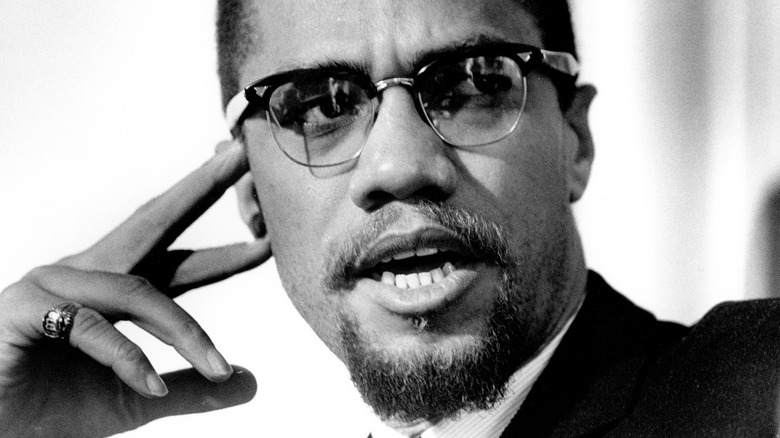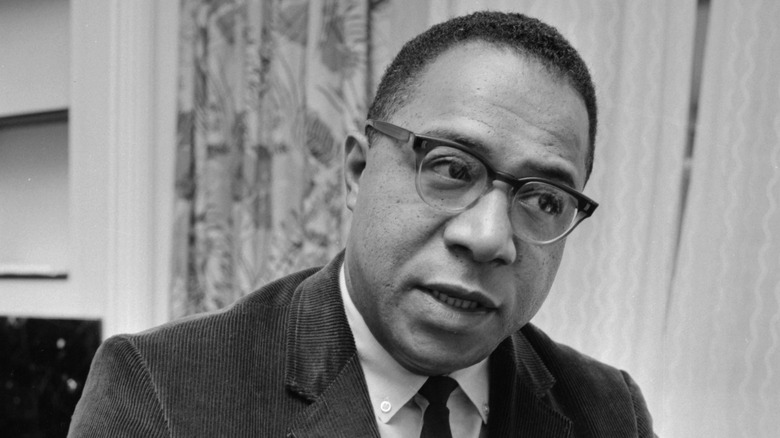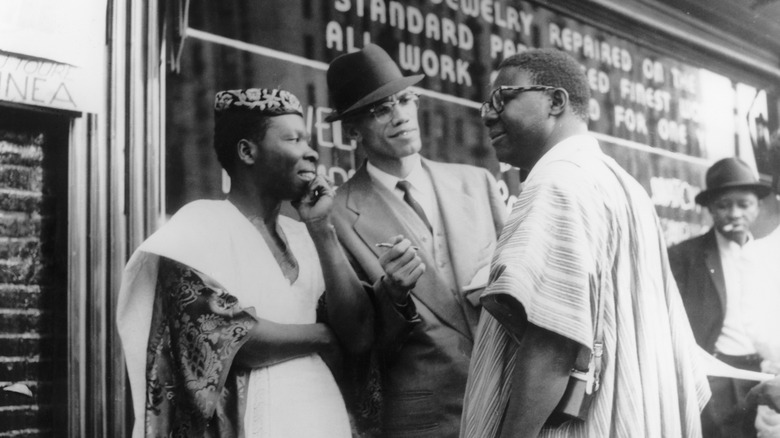Why Three Chapters Of The Autobiography Of Malcolm X Were Never Published
Malcolm X, a fierce public critic of American white supremacy and former leading figure in the Nation of Islam, was assassinated in New York City in 1965. At the time, he was working with journalist Alex Haley on what became "The Autobiography of Malcolm X," which traced the civil rights leader's life from seeing Ku Klux Klan violence as a child through his time as a drug dealer and in prison, conversion to Islam, and rise to national prominence in the fight for civil rights (via History). The captivating narrative is interwoven with Malcolm X's searing critiques of racism and U.S. public policy.
After Malcolm X's death, Haley finished the work on his own. The published book was a massive success (via History). Since 1965, it has been a classic text on the Black experience. But in 1992, three cut chapters, plus many notes, were sold by Haley's estate to a Detroit attorney, who in turn kept them private until 2018, when he auctioned one chapter to the New York Public Library (via Smithsonian Magazine).
Divergent visions
The three missing chapters are reportedly entitled "The Negro," "20 Million Muslims," and "The End of Christianity" (via Smithsonian Magazine). We only have details on "The Negro," the auctioned chapter. However, it is known that Alex Haley allowed editors to remove all three from the final book, breaking a promise to his co-author.
Haley and Malcolm X had different initial visions for the work, according to History. At first, Malcolm X was not keen on an autobiography, preferring a book of essays that would castigate white society and lift up the value of Islam. It was Haley who was interested in Malcolm X's personal story and convinced him to go in that direction with the book. According to Smithsonian Magazine, Haley was also less radical and sought to scale back Malcolm X's rhetoric.
This explains the exclusion of "The Negro," and possibly the other two chapters. "The Negro" departs from the Black leader's life and takes the form of an analytical essay (via History). It criticizes a racist society, but also rebukes what Malcolm X saw as the failed Black response to it.
A controversial polemic
Alex Haley wrote that "The Negro" was "guaranteed to upset the NAACP and [White] Citizens Councils, alike" (via The Boston Review). In the chapter, Malcolm X condemned Black leaders who collaborated with an oppressive white society that urged incrementalism rather than radical change. For example: "One of the white man's favorite tricks, through his 'liberals' and through his puppet 'Negro leader' mouthpieces, is to keep flooding the black masses and the rest of the world with propaganda that the black man here is getting better off in America in every way, every day."
He called American society "as sick as Babylon" (via The Guardian). According to the missing chapter, it wasn't just white people, with their racist attitudes and policies, who were ill. Black people, Malcolm X wrote, were "sick economically. Politically. Mentally. Socially. Spiritually ... Here is this sick, Christianity-duped, white man-duped, brainwashed race today, sittin-in and kneeling-in at the bottom of the ladder, looking up and hollering, 'I'm just as good as you,'" (via History). This was another attack on incrementalism, with a reference to the sit-ins of the mainstream civil rights movement, of which Malcolm X was a critic.
The chapter did not fit with the narrative structure Haley desired. According to the Boston Review, even with the removed chapters, the book's original publisher, Doubleday, pulled out of the contract, fearing the book was too controversial. It was published by Grove Press instead, and by 1977, had sold 6 million copies.


